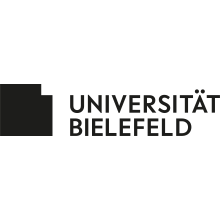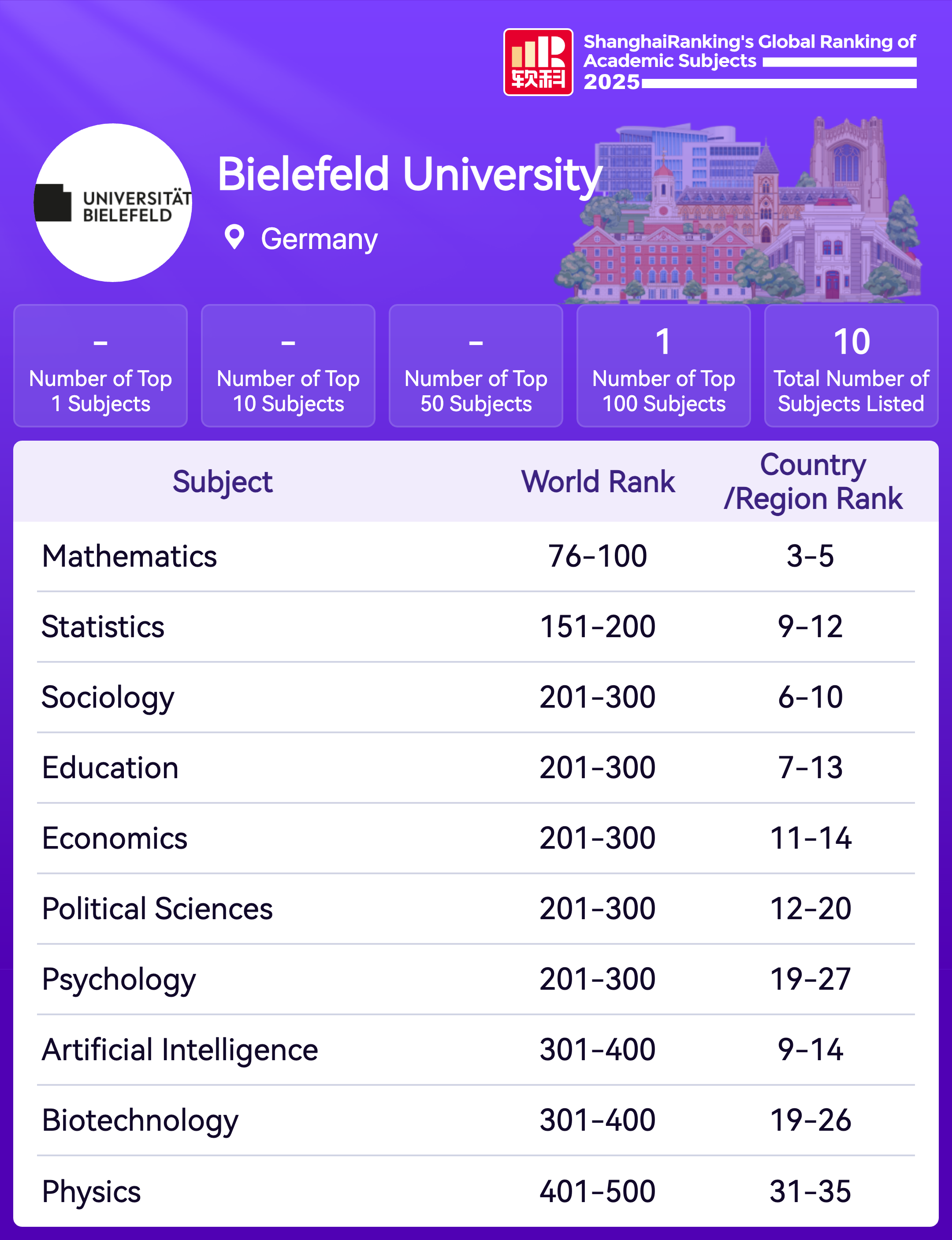 701-800
701-800 


Bielefeld University - Transcending Boundaries Interdisciplinary - Communicative - Innovative - International Bielefeld University was founded in 1969 with an explicit research assignment and a mission to provide high-quality research-oriented teaching. Today it encompasses 14 faculties covering a broad spectrum of disciplines in the humanities, natural sciences, social sciences, and technology. With about 25,000 students in 118 degree courses and about 3,200 staff members (including 279 professors and lecturers as well as 1,800 academic staff) it is one of Germany's medium-sized universities. Since its foundation, Bielefeld University has developed guided by the principle of interdisciplinarity. Behind this lies the conviction that complex problems can no longer be adequatety addressed with disciplinary approaches alone. In this case, interdisciplinarity stands for a spectrum of multiple perspective approaches of varying kinds and intensity. This perspective penetrates every aspect of the university’s identity. Even the University building itself stands as an architectural statement of interdisciplinarity. It brings together nearly all the facilities under one roof, which is unique in Germany. Its striking architectural structure draws people together from the most varied of areas over short distances. At Bielefeld University, a culture of communication has developed between teaching staff and students, between scientists, university management and administrative staff, whose openness towards new and unconventional ideas is characteristic. This culture formed the basis of important forward-thinking decisions and has significantly contributed to the successes of the University. An example of this is the establishment of the Faculty of Technology (1990), as well as the Faculty of Health Sciences, which is itself singular in Germany. Both these faculties are evidence of the University’s institutional ability to innovate as the scope and demands of interdisciplinary evolves. Springing from the Bielefeld principle of ‘Transcending Boundaries’, its research profile is interdisciplinary at its core, involving various faculties and central academic institutes – resulting in cutting-edge research carried out at the highest international level.The research profile of Bielefeld University is oriented to big issues relevant to science and society, primarily at the productive interfaces between disciplines.The support of researchers is paramount - exemplified by the world-renowned Centre for Interdisciplinary Research, which is one of the number of ways the university fosters academic talent - along with excellent infrastructure and a range of research and career development services.The University also distinguishes itself in its teaching through its specific profile that is based on dense networks across disciplines. According to the most relevant rankings and assessments, Bielefeld University Library is one of the best and most service-oriented university libraries in Germany. In addition to interdisciplinarity, innovation and an overall commitment to excellence, diversity also plays a major role for the University, which is committed to inclusion, equality and opportunity for all with regard to gender, race, culture, sexuality, and/or disability. This is also evident in the central commitment to internationalization both to broaden the perspectives of all members of the student body and staff, both national and international, but also to create an environment where students and researchers from other countries, cultures and traditions feel comfortable and safe away from home. This is a commitment that is extended to its services for international students, researchers and employees at a multitude of levels with the goal to help create a home away from home, thus providing the proper context and environment where learning, study and research can be most productive for everyone.
 701-800
701-800 
| Subject | Rank |
|---|---|
Mathematics | 76-100 |
Statistics | 151-200 |
Economics | 201-300 |
Political Sciences | 201-300 |
Sociology | 201-300 |
Education | 201-300 |
Psychology | 201-300 |
Biotechnology | 301-400 |

